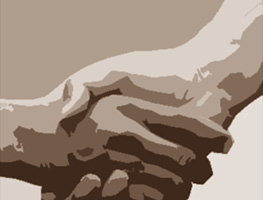
‘My experience is that when workers across the systems work collaboratively and cooperatively with each other the outcomes for the child and carers can be positive in numerous ways and is heart-warming.’ – survey respondent
Compared to 2017
Compared to the June 2017 results, the January 2018 respondents award modest improvements in some areas. Cooperation between the Department for Child Protection (DCP) workers and foster and kinship carers occurs frequently or always according to 23% and 28% of respondents respectively, both significant improvements. It is up by 15% to a survey-best of 31% among organisations when there is an investigation of child sexual abuse.
The poorest performers
Cooperative relationships that occurred least frequently were between
- DCP staff and the National Disability Insurance Agency
- disability services and DCP workers
- heads of government on child protection matters
- organisations, NGOs, universities and other training organisations on workforce planning
Overall
Even for the best performing relationships, the survey revealed how far we are from a situation in which cooperation and collaboration occurs frequently or always with only six of the nineteen relationships surveyed exceeding 20% and none exceeding 31%.
Strategic relationships were among the worst rated. Cooperation between heads of government departments, workforce planning and service planning were given ‘never’ or ‘not normal’ ratings by 49%, 60% and 47% of respondents respectively.
Comments
Our special thanks to the many respondents who made extensive comments and they mostly agree with the general direction of the statistics. They also illuminate specific issues and, apart from a few excisions, we reproduce them in full in the report.
Download the January 2018 Cooperation and collaboration survey report.

